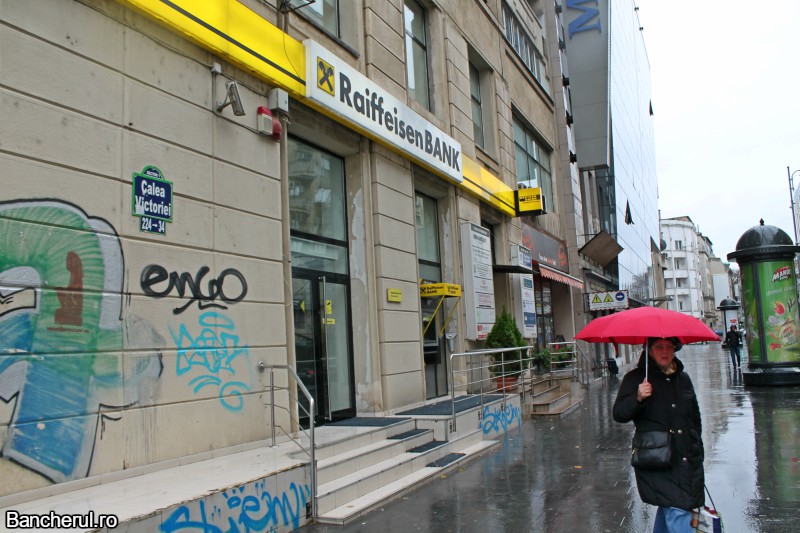
- Human Capacity Report of RBG shows: investments in training and development pay off
- € 20 million spent on training and development each year
- Regionality creates time-cost savings and protects the environment
- Training of 40 per cent of all trainee bank officers
- Employees 17 per cent more productive than the industry average
The Raiffeisen Banking Group in Austria (RBG) today presented the first Human Capacity Report of any multi-level banking group in the German-speaking countries.
For the very first time, it surveyed the contribution made by the RBG to the Austrian human capital base (the performance potential of employees as generated by training and development) and its importance for the economy. The report was prepared on the basis of a comprehensive questionnaire survey using verified data from 2015, together with the Economica Institute for Economic Research under the leadership of Christian Helmenstein.
“Following the analysis of the economic footprint and the published Environmental Balance Sheet for the past two years, this Human Capacity Report completes the presentation of the overall social significance of Raiffeisen in Austria. The report supplies scientifically surveyed key ratios which show that we are making an above-average contribution to economic growth and productivity with our investments in human capital. Ultimately, human capital - in addition to innovations - is one of the most important factors of economic growth,” says Walter Rothensteiner, Chairman of the Austrian Raiffeisen Association and Chairman of the Management Board of Raiffeisen Zentralbank Österreich AG, about the reasons for preparing the report.
The topic of sustainability is extremely important right across the banking group. The regular involvement of stakeholders is a tradition.
“We therefore also see this report as an important instrument within the scope of our intensive stakeholder dialog. Our multilayered commitment and the high level of transparency when dealing with our key ratios make it possible to look at the services of RBG from a new perspective,” explains Andrea Sihn-Weber, head of the Sustainability Management of RZB Group, which is responsible for preparing the report.
Above-average economic growth and productivity
Occupational training and development not only has an impact on the performance of the individual employees and the company but also increases productivity and added value in the country.
Each euro invested in occupational training and development increases the added value by € 3.60. With per capita expenditure on training and development of € 816 (Austrian average: € 425) and 25.4 hours of professional development per year (Austrian average: 10 hours), the Raiffeisen Banking Group makes a contribution to economic growth and productivity in Austria that is well above average.
Regional presence takes the strain off people and the environment
Raiffeisen’s deep roots in society are also demonstrated by its nationwide presence. “99.5 per cent of the population lives within a 10.1-minute drive of one of the more than 2,000 Raiffeisen locations. Customers benefit from this, as does the labor market. This is achieved on the one hand by the easy-to-reach employer in rural areas and on the other hand by the fact that Raiffeisen can draw on a large labor force potential,” is how the study’s author, Christian Helmenstein, analyzes the effect.
The individual employee is also a beneficiary, as the short journeys to work lead to relatively low commuting times averaging just 10.1 minutes (Austrian average: 18.6 minutes). The result of the short journey times can be expressed in cash terms. For example, based on an extrapolated 63 hours of avoided commuting time per year, the opportunity costs for leisure amount to € 554 per employee or a total time-cost saving of € 10.6 million.
This effect also has positive outcomes for the environment. The short commuting distances of Raiffeisen employees save at least 3.3 tonnes of CO2 equivalent compared to other commuters.
Training partner for young people
The Raiffeisen Banking Group offers employees perspectives on all training levels. One focal aspect of this is apprentice training, which offers clear prospects for the future. For example, 40 per cent of all trainee bank officers in Austria are trained within the banking group.
It should be noted in this regard that the Raiffeisen Banking Group accounts for only 29 per cent of employees in the financial services industry. 82 per cent of young employees join the full-time staff after successfully completing their training. The share of employees with a technical college or university certificate is also above-average in the banking group. Some two in every ten employees (19.5 per cent) hold an academic qualification (Austrian average: 17.7 per cent).
Employees demonstrate above-average productivity
In an industry comparison, the productivity of the Raiffeisen Banking Group employees is noticeably higher. While employees earn on average 4.6 per cent less than their industry colleagues in absolute terms, they are nevertheless 17 per cent more productive.
This figure also applies to management staff; although they earn more than twice what non-management employees earn, the difference is less than the Austrian average.
High levels of investment in health care
There are numerous preventative measures in the area of health within the RBG. This includes the support of physical activity as well as stress management or non-smoker programs. This commitment to promoting health in the workplace is underpinned with above-average per capita expenditure of € 141.55 and a total amount of € 3.5 million per year.
The Human Capacity Report can be accessed online at www.rzb.at/nachhaltigkeitsmanagement/wertschoepfungsberichte.

